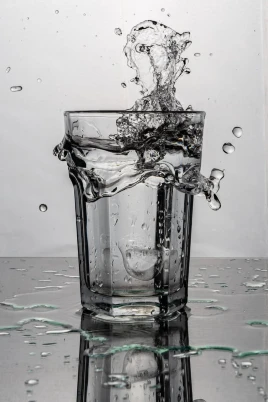 ACSM Fluid Replacement Recommendations
ACSM Fluid Replacement Recommendations
Proper hydration is important for optimal physical performance and endurance. Because both dehydration and overhydration can be a serious problem for athletes, experts at the American College of Sports Medicine (ACSM) regularly update their position paper recommendations for fluid replacement for physical activity.
According to the ACSM, because hydration needs can vary considerably between individuals, and for the same individual under different environmental conditions and different physical activities, it’s important for athletes to develop a personalized hydration plan.
Individuals can monitor their hydration status by employing simple urine and body weight measurements. Several days of first morning body weights can be used to establish baseline body weights that represent “normal” body water levels. Body weight changes can reflect sweat losses during exercise and can be used to calculate individual fluid replacement needs for specific exercise and environmental conditions.
Fluid replacement before exercise, if needed, is meant to start the physical activity at “normal” body water and electrolyte levels. Fluid should be consumed several hours before exercise to enable fluid absorption and to allow urine output to return to normal levels. ACSM recommends consuming beverages with sodium and/or salted snacks to help stimulate thirst or retain fluids.
Fluid replacement during exercise is meant to prevent excessive dehydration (weight loss greater than two percent from baseline body weight) and to avoid excessive changes in electrolyte balance in order to avert compromised performance. The amount and rate of fluid replacement will depend on the individual and the activity, accounting for the opportunity to drink. Exercise-associated hyponatremia, which can occur in endurance events, is associated primarily with consuming fluid in excess of sweating rate. Individuals should develop customized fluid replacement programs that prevent excessive dehydration as well as over hydration. The routine measurement of pre- and post-exercise body weights is useful for determining sweat rates and customized fluid replacement programs. The guidelines note that consuming beverages containing electrolytes and carbohydrates often provides more benefits than consuming water alone. Learn how to calculate your sweat rate.
Fluid replacement after exercise is meant to fully replace any fluid and electrolyte losses. If time permits, regular meals and beverages will restore normal hydration levels. Consuming beverages and snacks with sodium will help expedite rapid and complete recovery by stimulating thirst and fluid retention. Individuals needing rapid and complete recovery from excessive dehydration can drink 20-24oz for every 1 lb of body weight lost.